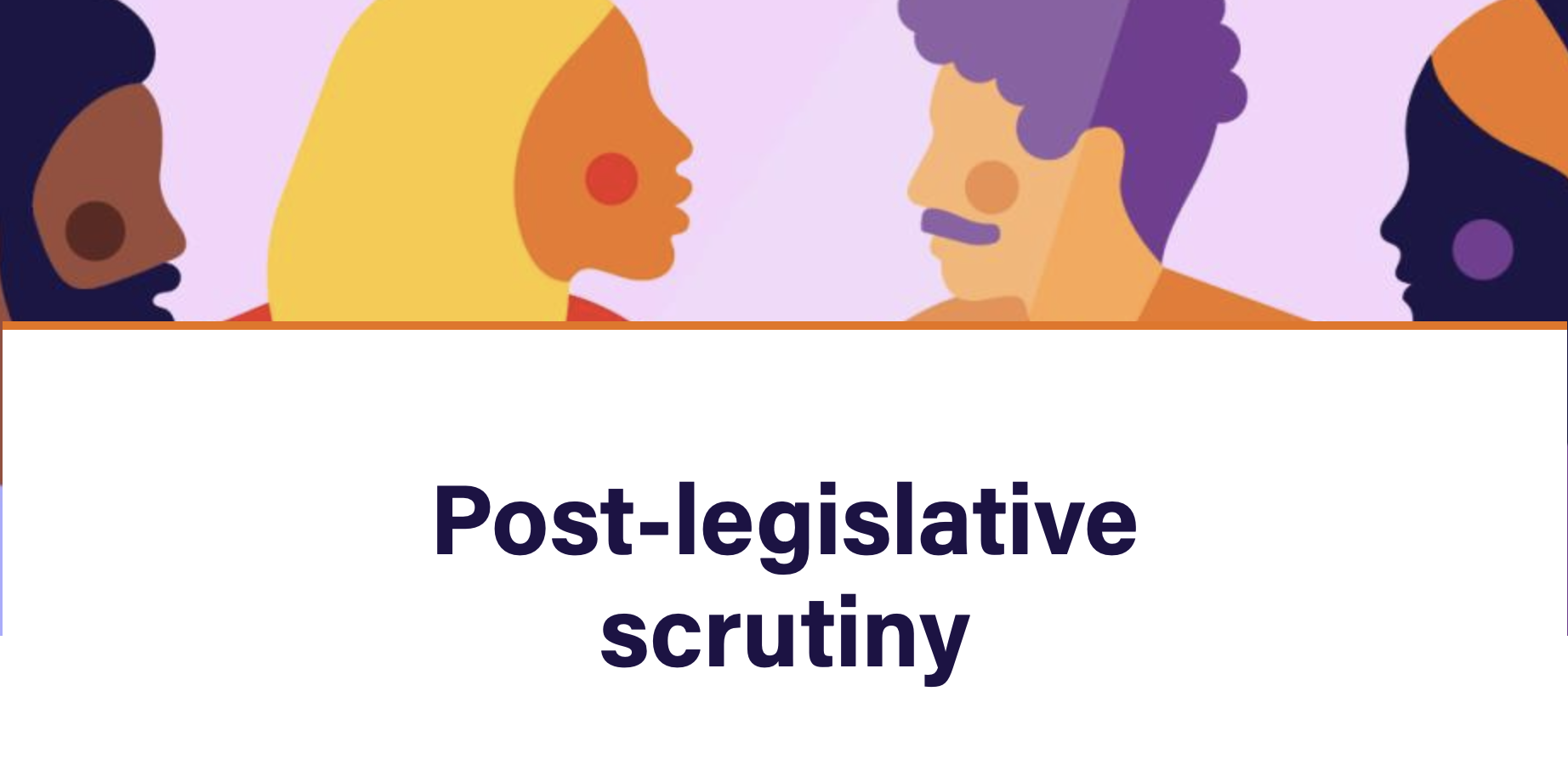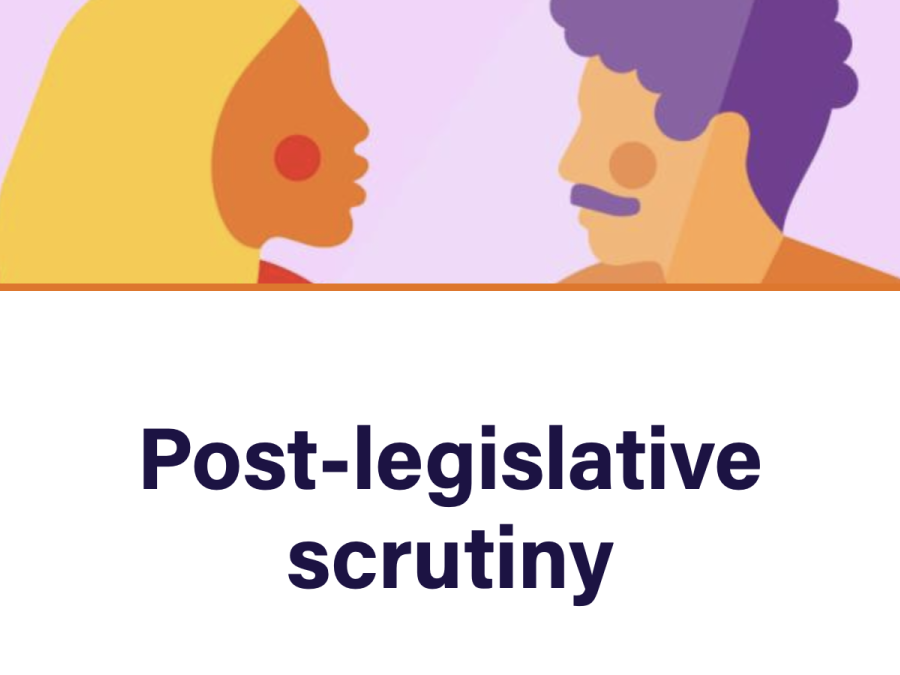GLOBAL COMMUNITY OF PRACTICE ON POST-LEGISLATIVE SCRUTINY
By: Franklin De Vrieze, Head of Practice Accountability, Westminster Foundation for Democracy. Contact: franklin.devrieze@wfd.org
Parliaments make and change laws. They also have a role in checking the implementation of laws and evaluating whether they achieve their intended outcomes. Implementation is complex and does not happen automatically. What is more, parliaments and elected representatives often have little information on what happens after a law is adopted. So, parliaments need mechanisms to effectively monitor the implementation of legislation.
Evaluating the impact of laws
Post-legislative scrutiny (PLS) is the practice of monitoring the implementation and evaluating the impact of laws. The aim is to ensure that laws benefit citizens in the way originally intended by lawmakers. PLS is often carried out by parliamentary committees. As PLS is recognized as an integral part of the legislative cycle, it is emerging as a new dimension within the legislative and oversight role of parliament.
Westminster Foundation for Democracy (WFD) has helped parliaments around the world pioneer PLS and has suggested two approaches. The first is an institutional approach to PLS, whereby one focusses on strengthening parliament’s capacity for PLS. The second is a thematic approach, focusing on gender-sensitive and climate-proof PLS, among others.
A new Community of Practice
Recently, a new Community of Practice on Post-Legislative Scrutiny (CoP-PLS) has been established, bringing together the various PLS initiatives as developed over the past years and upscaling them in a more systematic and structured level.
At its core the CoP-PLS is an opportunity for those working in the field of law making and evaluation to engage and build a network of associates from which collaboration, information exchanging, and learning can occur. The CoP-PLS is an opportunity to share knowledge about how PLS works in one’s national context, its successes, and challenges, and to discuss how to overcome these challenges. The CoP-PLS can contribute to peer-to-peer learning among PLS practitioners and inform comparative studies and other knowledge products on PLS.
Deriving from the knowledge sharing, the CoP-PLS may also be an opportunity to define and promote standard practices in the area of legislative evaluation. The 2017 ‘Principles on PLS’ and the 2022 ‘Indicators on PLS’ can be considered examples of standards setting, which can be developed further through the CoP-PLS. The CoP-PLS can be an opportunity to consider innovative work on legislative evaluation and PLS, to test and try, and to gather lessons learned to allow PLS work to evolve. Examples of innovative PLS approaches can be found in the work on gender-sensitive PLS or climate-proof PLS.
In addition, the CoP-PLS can be a venue for advocating for the role of PLS within the legislative cycle and within the legislative and oversight roles of parliament, and for PLS inquiries on specific legislation as relevant in a national or regional context.
So far, the CoP-PLS has launched online clinics, annual courses on PLS in cooperation with the Institute of Advanced Legal Studies (IALS) of the University of London, support to parliament in piloting PLS inquiries by Committees and advising on the institutionalization of PLS in parliamentary structures and procedures.
Interested individuals can join the CoP-PLS by signing up to The PLS Pulse – the new newsletter around PLS. Link: https://www.wfd.org/accountability-and-transparency/post-legislative-scrutiny
Parliamentary innovation
To support parliaments in initiating PLS activities, WFD published a new manual for parliaments, which is called parliamentary innovations through post-legislative scrutiny. This manual provides practical guidance preparing, organising and following up on post-legislative scrutiny activities. The manual proposes new or additional parliamentary practices to improve the efficiency of PLS and/or its outreach to the public. This document is a revised and updated version of WFD’s PLS manual from 2017.
Resource: Maria Mousmouti and Franklin De Vrieze (2023), Parliamentary innovation through post-legislative scrutiny - Manual for parliaments, 64 p.
New evaluation framework
As a contribution to the CoP-PLS Dr Maria Mousmouti drafted a new publication, exploring the significance of evaluating PLS activities in parliaments. She proposes an evaluative framework, drawing on previous work by WFD, that incorporates traditional criteria, while also integrating important principles like inclusivity and democratic governance impact. Throughout, Dr Mousmouti provides valuable insights and practical examples to guide the evaluation process, emphasising the importance of transparency, accountability, and building public trust.
Resource: Maria Mousmouti (2023), Evaluation framework on the results of post-legislative scrutiny (PLS) activities by parliaments, 40 p.









